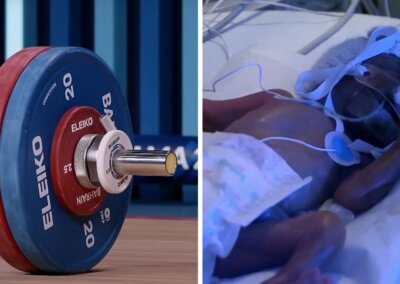A man, who initiated the assisted suicide process by contacting an assisted suicide clinic after doctors misdiagnosed him with motor neurone disease, is warning MSPs that “people will die unnecessarily” under Scotland’s assisted suicide Bill, amidst growing concerns about the Bill’s broad definition of terminal illness.
As MSPs prepare to debate and vote on Liam McArthur’s Assisted Dying for Terminally Ill Adults (Scotland) Bill next week on 13 May, Peter Sefton-Williams, 72, a retired journalist, has warned MSPs that if they “go ahead with this bill, they have to accept that people will die unnecessarily. There will be mistakes and people will die. So is it worth it?”.
Misdiagnosis leaves Sefton-Williams feeling “absolutely terrified”
Last year, Sefton-Williams was told by his doctor “there is no doubt whatsoever that you have Motor Neurone Disease and that you typically can live between one and a half to four or five years”, and was also told to “not make any plans past six months’ time”. As a result, Sefton-Williams was “absolutely terrified” and immediately began making plans to end his life at the Swiss assisted suicide clinic, Dignitas. He even scoped out a notorious suicide spot near where he lived in case his plans did not work out.
“The day after the diagnosis, I contacted Dignitas, because they said it would take six months to do the paperwork. So I thought, ‘I have to do this in a hurry’”, he said.
As his panic subsided, Sefton-Williams abandoned these plans, and he began to notice his symptoms were not becoming worse but were actually improving. After seeking the opinion of a third specialist, he was told, “this is not Motor Neurone Disease, this is Multifocal Motor Neuropathy”.
“It’s very rare, it mimics the early stages of Motor Neurone Disease. But it’s a mild disease, nobody dies of it, and it’s largely curable”, he added.
Safeguards in McArthur Bill ineffective
Under McArthur’s Bill, an application for assisted suicide would require the approval of two doctors, but Sefton-Williams, who received his diagnosis from two of the country’s top specialists, pointed to his own experience as evidence that this was not an effective safeguard.
Sefton-Williams said “Do you just shrug your shoulders and say, ‘Well, that’s life, mistakes happen’? Because mistakes are going to happen, and I’m living proof of that”.
“The lesson is that doctors make mistakes. Doctors quite frequently make mistakes”.
“Doctors are fallible. It’s no use saying they’re the kind of gold standard and will always get it right, because they don’t always get it right. As my case shows, I could have thought that was a way out and I would now be dead. Whereas, as far as I can tell, there’s very little wrong with me”, he added.
Sefton-Williams, who said his illness “is not a terminal illness at all”, would have likely been granted an assisted suicide under the McArthur Bill after the two specialists’ initial motor neurone disease diagnosis. He commented that it would have been “absolutely horrific” if he had opted for an assisted suicide. “The idea that I could have [ended my life] is absolutely horrific and the thing that most disturbs me is that nobody would have known”.
“What people would have said is, ‘Peter took a brave decision. He wished to die with dignity, and that’s what he did,’ and everyone would be satisfied that it had been a good outcome”.
“That’s what the world would think. But it wouldn’t have been a good outcome. I would have died unnecessarily”.
Concerns about broad definition of terminal illness
Sefton-Williams’ warning comes as Scottish First Minister John Swinney stated his intention to vote against the Bill and as McArthur decided to raise the minimum age to access assisted suicide in the Scottish legislation from 16 to 18 in a move branded “a last ditch effort to save the Bill”.
It also comes at the same time as a report by Scotland’s Health, Social Care and Sport Committee that directly identified significant flaws with the Bill.
One area of contention is the definition of terminal illness, which the Bill itself defines loosely, saying that it applies in cases in which someone has an “advanced and progressive disease, illness or condition from which they are unable to recover and that can reasonably be expected to cause their premature death”.
Under the Bill, anyone with a terminal condition that could foreseeably end their lives, even many decades in the future, would qualify for an assisted death, including those with conditions such as anorexia, Down’s syndrome, and people with disabilities.
In a letter to fellow MSPs, Pam Duncan-Glancy, the first permanent wheelchair user in the Scottish Parliament, wrote “While the Bill’s title implies that it is aimed at those who are terminally ill, many people live with ‘conditions from which they are unable to recover and that in some cases can reasonably be expected to cause their premature death’”.
“This broad criterion, as it stands, includes many people who can reasonably hope to live joyful lives for decades yet. It includes me”.
Former Paralympian, Baroness Grey-Thompson was also highly critical of the definition of ‘terminally ill’ provided in Liam McArthur’s proposed Bill.
She argued the wording “is so vague that it would almost certainly include many disabled people”.
“Many disabled people fear that to show any signs of melancholy, struggle with their disability, or frustration with their suffering, would be to affirm a wish to die”, she added.
Spokesperson for Right To Life UK, Catherine Robinson, said “MSPs considering Liam McArthur’s extreme assisted suicide Bill should be shocked by Peter Sefton-Williams’ troubling account of misdiagnosis”.
“The vagueness of McArthur’s legislation, particularly the broad definition of terminal illness, means that vulnerable groups will be under grave threat from this dangerous law”.
“MSPs must be aware of the dangers contained in this Bill and keep Scotland away from the dark, sinister path of assisted suicide. It should be voted down immediately”.












